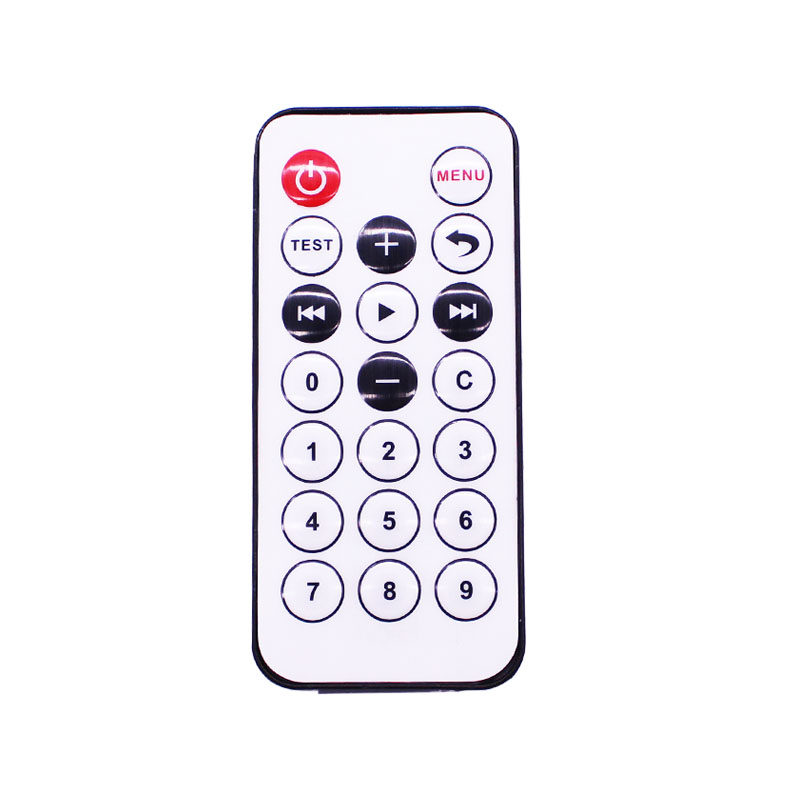Welcome to Mini Infrared Remote Controller repository
Mini Infrared remote controller
When using infrared remote control, we need to use infrared remote control and infrared receiver. The physical map of the two is shown below:
Note:
In order to avoid the interference of sunlight on infrared sensor, we need to carry out this experiment indoors.
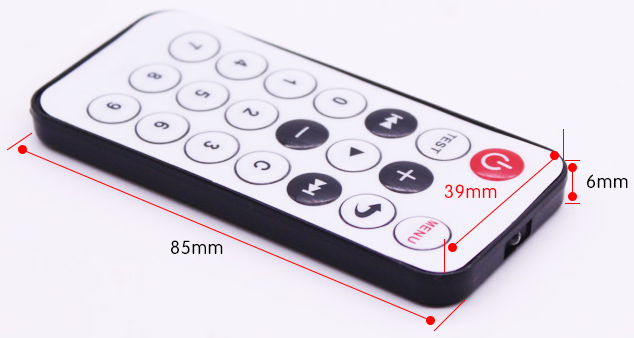
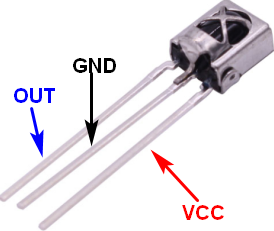
1.Introduction of infrared remote controller :
This remote controller with a standard 38Khz modulation frequency to accommodate a variety of infrared receivers on the market. It possess 0~9 number keys, 4 direction keys, acceleration and deceleration, left and right rotation, lighting, sound and other buttons, which can be easily applied to various smart cars and development boards. Built-in universal 3V button battery, long time and easy to replace.
2.Introduction of infrared receiver :
This infrared receiver comes with an iron-shell shield cover to prevent external interference(Some infrared receivers do not have). Built-in dedicated IC, with infrared remote control, can be applied to audio-visual equipment, home appliances, microcontroller learning, robot remote control and so on.
3.Introduction of infrared:
Electromagnetic waves having a wavelength from 760 nm to 400 um in the spectrum are called infrared rays, which is an invisible light. At present, almost all video and audio equipment can be remotely controlled by infrared remote control, such as televisions, air conditioners, DVD players, etc., and the infrared remote control can be seen.
4.Schematic analysis
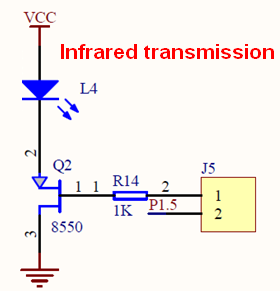
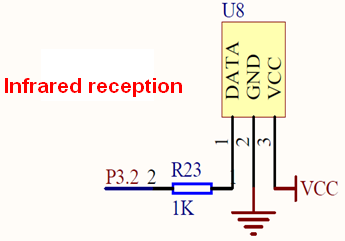
5. Introduction to the principle of infrared communication
The code value corresponding to each key is shown in the figure below:
You can use the serial port to display the corresponding key code first, and then modify the program to match it to suit different remote controls.
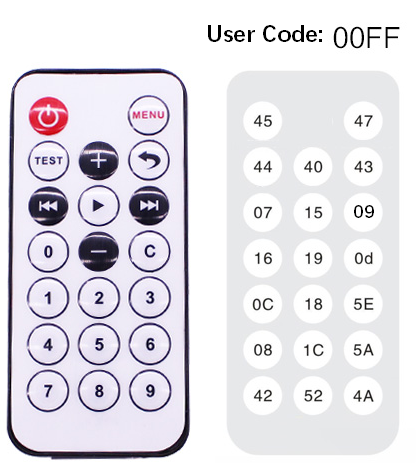
Infrared sending and receiving codes are divided into: guide code, user code, user reverse code, operation code(data code), operation reverse code(data reverse code).
Below we will introduce these kinds of encoded waveform:
For the part of infrared transmission, the infrared remote control we provided has been set up. Therefore, we do not explain the knowledge about infrared transmission here, but mainly explain some points of infrared reception.
We mainly use the NCE protocol:
The protocol stipulates that the lower bits are transmitted first.
A string of information first sends a 9ms high pulse of AGC (Automatic Gain Control) . Then, send a 4.5ms low level. Next, send four-byte address code and a command code. These four bytes are : Address code, address reverse code; command code; command reverse code.

1)Guide code:The guide code defined by the uPD6121G of the NEC protocol is 9ms high level+ 4.5ms low level, waveform as shown in the figure below:

2)User code and operation code: The user code and operation code defined by the uPD6121G of the NEC protocol is:
"Logic 0" : 0.56ms high level + 0.565ms low level;
"Logic1" : 0.56ms high level + 1.685ms low level;
Waveform as shown below :
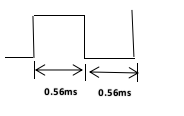
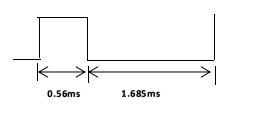
Logic 0 --waveform Logic 1--waveform
The wave output after passing through the infrared receiver, as shown below:

If you keep pressing that button, a series of messages can only be sent once. If you keep pressing, the repeating code is sent with a period of 110ms. Waveform as shown below.

The repeat code is composed of a high AGC level of 9ms, a low level of 2.25ms, and a high level of 560us, until the key is released. Waveform as shown below:
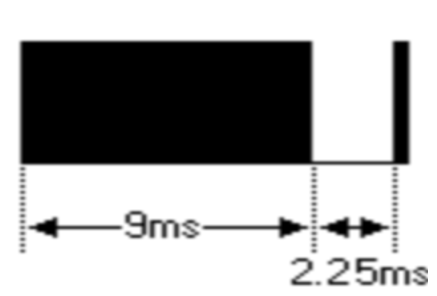
The process of infrared receiving and controlling the car is as follows:
1) Generate a falling edge, enter the interrupt function of external interrupt 0, and check whether the IO port is still low level after delay time. If it is low level, wait for the low level of 9ms to pass. Wait for the 9ms low level to pass, and then wait for the 4.5ms high level to pass.
2) Start receiving the 4 sets of data transmitted, wait for the low level of 560us to pass, and detect the duration of the high level. If it exceeds 1.12ms, it is high level (the duration of the high level is 1.69ms, the low level Duration is 5.65ms.)
3) Detect whether the received data is the same as the data reverse code (operation reverse code), and wait for the same data. If it is the same, it is proved that the corresponding data sent by the infrared remote control is received. Then, the car moves according to the function set in the program.
